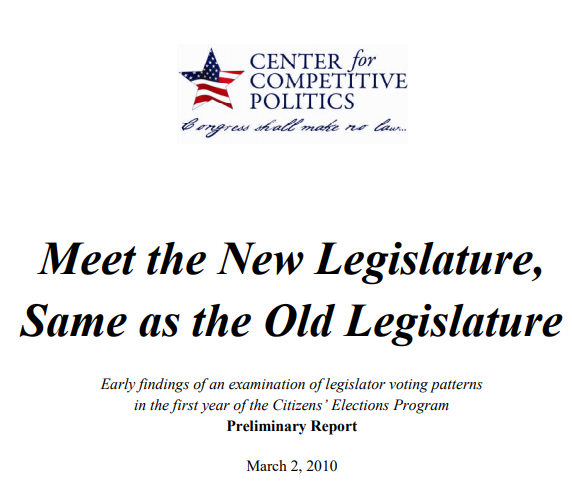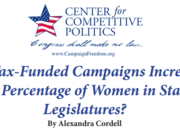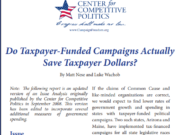The 2008 election cycle was the first in Connecticut where candidates for state legislature could choose to accept taxpayer dollars to fund their campaigns, replacing the traditional system of private, voluntary contributions from citizens. This report measures changes in the voting patterns of legislators who served in the Connecticut General Assembly during the 2007 – 08 session and accepted taxpayer dollars for their 2008 re-election campaign. By identifying significant interest groups and comparing their legislative priorities to voting patterns, any noticeable change in voting since the beginning of the Citizens’ Election Program (CEP) would potentially provide evidence that freeing legislators from private, voluntary contributions has indeed made legislators more responsive to citizens and less responsive to so-called “special interests.” Based on the study’s findings, there is no evidence to support the contention that providing taxpayer dollars to legislative candidates reduces the likelihood that a legislator will vote with an interest group. In four of the six vote sets observed, the number of times that legislators voted in favor of the interest groups studied actually rose. Based on this evidence, it appears that the CEP has not changed the frequency with which state legislators vote in favor of organized interest groups.
Read the preliminary report here.














